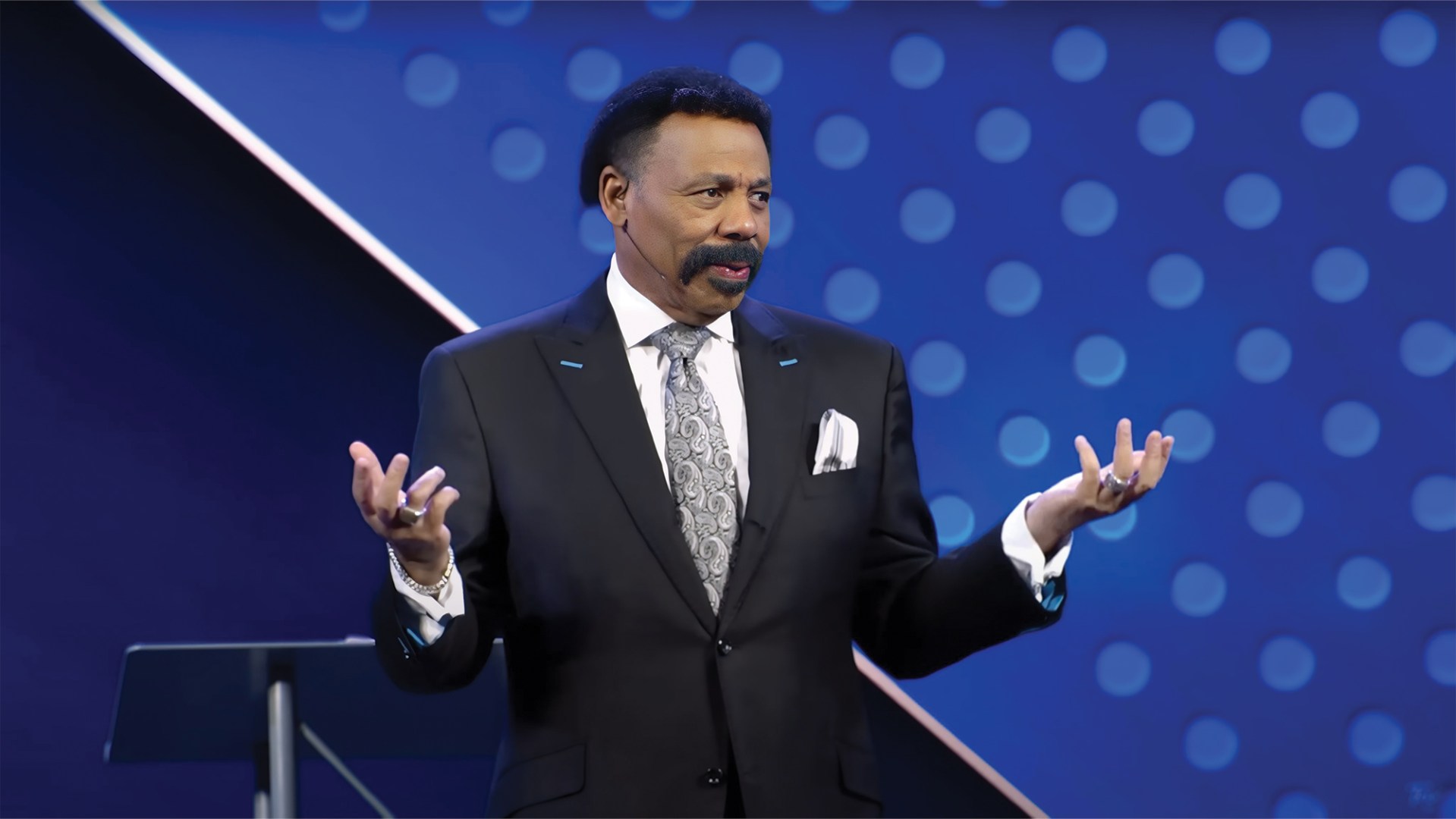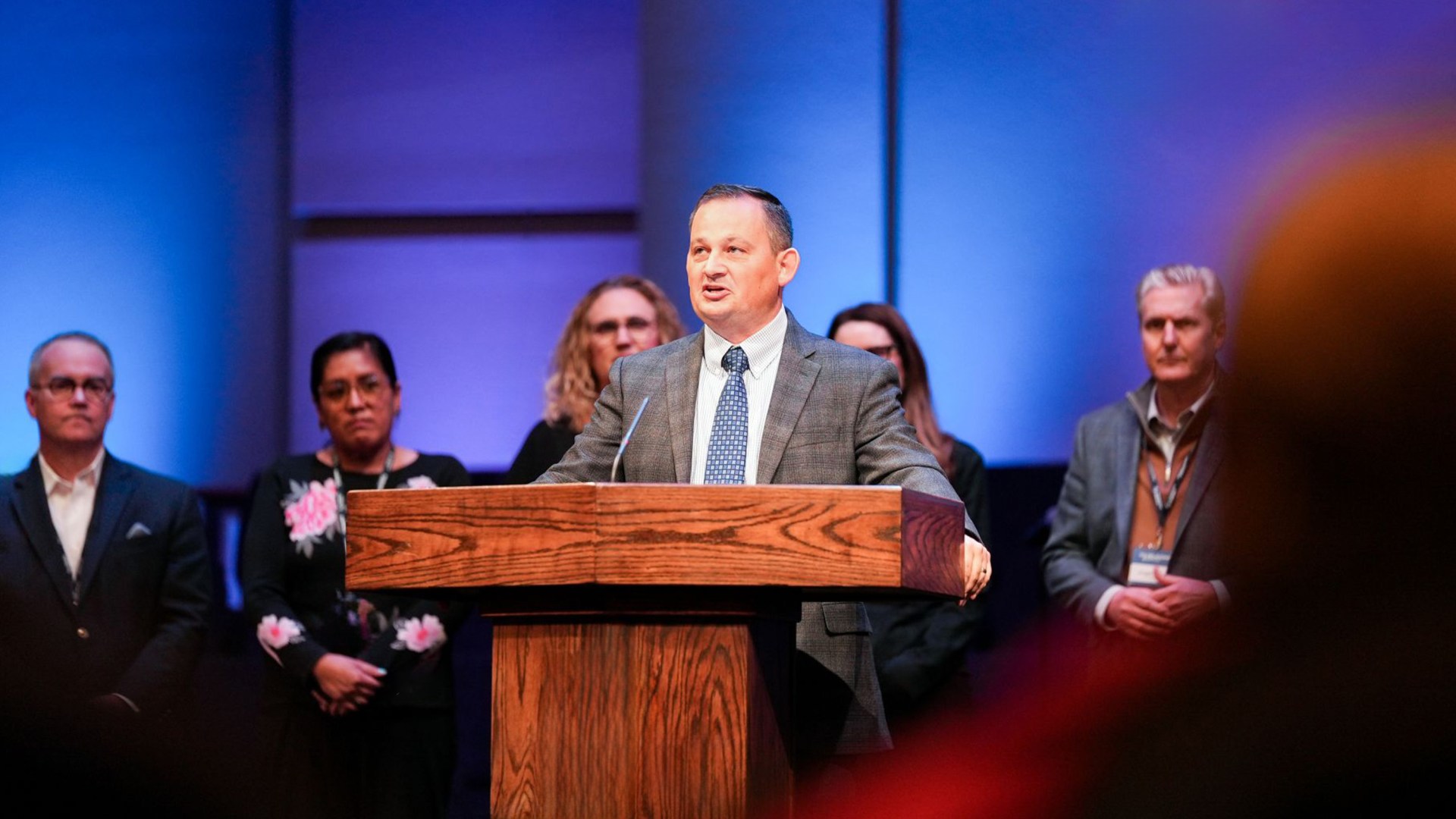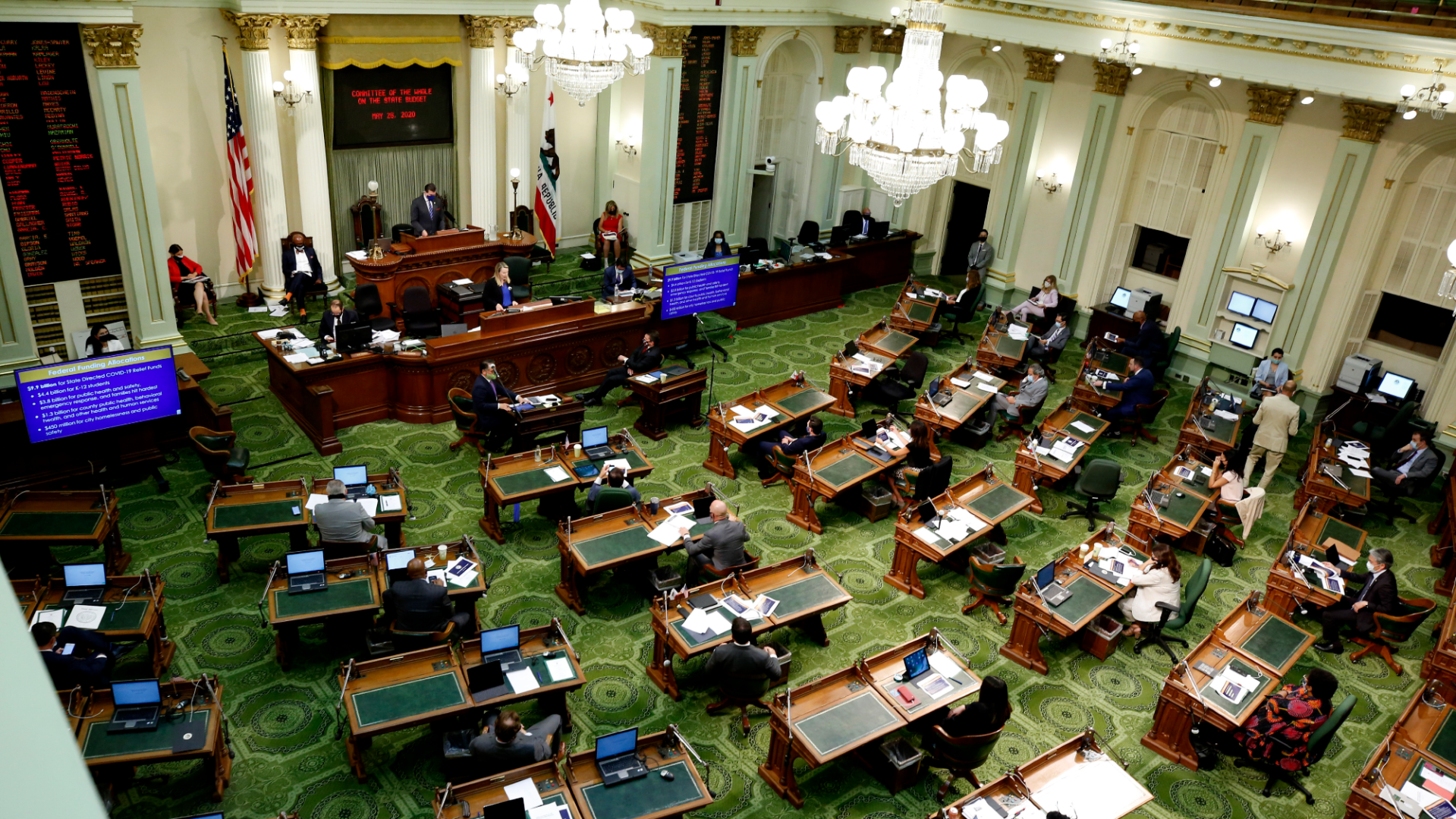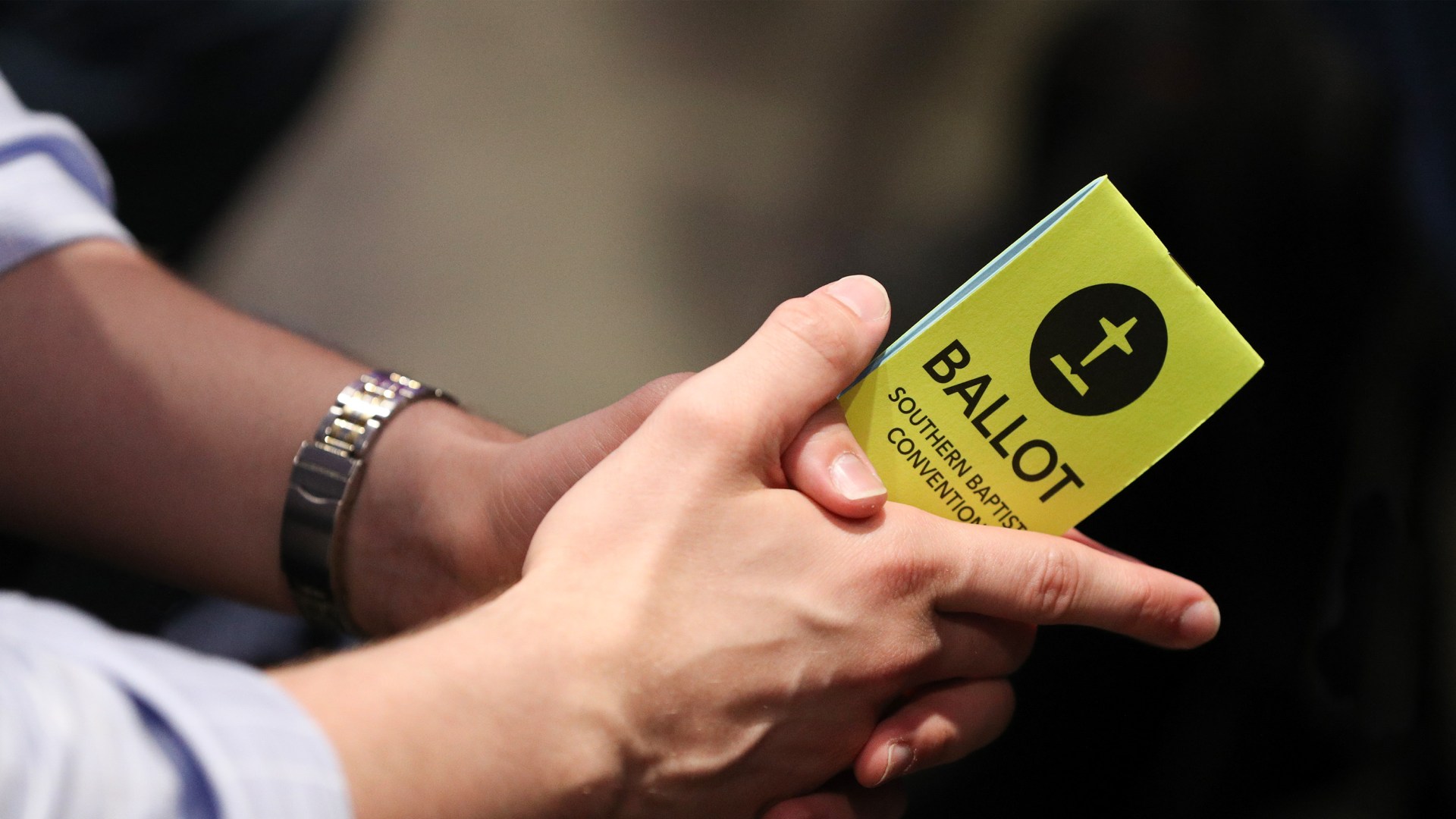Update (6/13/24): The Presbyterian Church in America voted not to require background checks on church leaders. Multiple presbyteries had submitted legislation for mandatory background checks on church leaders, and the denomination amended the legislation to say that churches would instead be “encouraged to adopt policies” for background checks. The assembly approved that amendment by voice vote.
For years, Jimmy G was seen as great guy and a leading member at his local community church—he was the go-to volunteer for all the ministries others avoided. On most Sunday mornings, you would see him serving alongside his wife in children’s ministry. But then something happened. Jimmy was suddenly arrested for multiple counts of aggravated sexual assault—some of them involving a minor. “Surely, Jimmy was framed,” thought everyone who knew him.
But then reports started showing up in local newspapers. This was not the first time Jimmy had been charged with such crimes. This had happened in another state years before, and his mode of operation was the same. It didn’t take long for new visitors to stop coming to this church—and as reports kept appearing on the front pages of local newspapers, even the faithful started peeling away from the congregation. The church’s reputation will take decades to recover in that close-knit small town.
I wish this account was fictional, but it isn’t. These events took place at a church in a neighboring community when I was a police officer. And although I’ve changed his name, the facts of his case, which I was privy to, are as stated. Sadly, this situation is repeated far too often in Christian churches today. During my time in law enforcement, I learned all too well how people with predatory proclivities can camouflage their activities behind church walls. And now, as the executive director of a large PCA church, I am personally aware of pastors’ immense responsibility to protect their flocks from harm.
Our churches are supposed to be sanctuaries of grace and peace, but the last few years have witnessed an explosion of abuse reports showing this calling routinely violated. This issue extends far beyond the Catholic church and has impacted many well-known evangelical denominations like the Southern Baptist Convention and the Presbyterian Church in America (PCA).
Sadly, no Christian community is immune to the shadows lurking within the human heart, whether these take the form of abuse or its cover-ups. And now that the devastating prevalence of such abuse and its outcomes are more apparent than ever before, we should be ever more vigilant to ensure the safety of every member in our congregations.
That’s why I’ve always considered mandatory background checks for all pastors, church officers, staff, and volunteers to be one simple step that congregations can and should take to nurture an environment that is inhospitable to abusive predators who would prey on the trust of our members. That’s also why I have been surprised by the resistance I’ve encountered to proposing mandatory background checks for all member congregations in my own denomination.
At last year’s General Assembly of the PCA, commissioners did not accept an overture to require mandatory background checks but sent it back for further consideration and perfecting. While I don’t object to making every effort to be clear when it comes to such matters, I was disappointed by some of the reasons listed for rejecting this initiative—including apprehension about government oversight, deterring volunteer retention, and damaging communal trust—which I will address shortly.
My primary concern is that many well-intentioned leaders may be naïve about how common it is for people in their congregations to carry dark secrets which threaten the safety of their church members. My time in law enforcement taught me that abusive individuals, irrespective of their church involvement, often conceal their true selves behind a veneer of respectability and personal piety. In fact, those with nefarious intentions can be even more gifted at weaving false narratives and personas than others.
In her book Predators: Pedophiles, Rapists, and Other Sex Offenders, Anna Salter quotes a convicted child molester as saying, “I considered church people easy to fool … they have a trust that comes from being Christians. … They tend to be better folks all around. And they seem to want to believe in the good that exists in all people.” And as Kimi Harris wrote in a previous piece for CT, “The predators that are statistically likely to be in the pews, volunteering, and even behind the pulpit aren’t just grooming their victims, they are grooming their community to view them as trustworthy and even as spiritual leaders.”
This realization underscores the necessity of informed trust, which must be complemented by proactive measures to safeguard our communities. Yes, we should trust our members; but we should also take steps to validate that trust, especially in those who lead and serve. Naïve trust is also incongruent with the witness of Scripture. Given our theological commitments to the doctrine of total depravity, the power of indwelling sin, and our penchant for self-deception, Christians ought to know better than anyone.
As Cornelius Plantinga Jr. wrote, “The story of the fall tells us that sin corrupts… Like some devastating twister, corruption both explodes and implodes creation, pushing it back toward the ‘formless void’ from which it came.” This pervasive corruption distorts our highest ideals and masks our darkest impulses. Knowing this means we take seriously the possibility that dreadful acts will arise in the most improbable of places and from the least likely persons. In Matthew 7:15, Jesus himself warns about duplicitous individuals in our midst who come to us “in sheep’s clothing, but inwardly they are ferocious wolves” (Matt. 7:15).
Especially as Presbyterians committed to the Westminster Confession of Faith and Catechisms, we believe we are not only born in sin but that every aspect of our humanity is fallen. This is why our polity demands examination of all nominated officer candidates and sets up a system of accountability and appeal—precisely because we know that even at our best, we are still sinful. Given our robust doctrine of sin, we rejoice at God’s amazing grace and, at the same time, do everything we can to resist sin and prevent its pervasive presence in people and structures, especially those in our communities.
One commonly cited argument against rigorous vetting processes that I have repeatedly heard is a deep-seated trust in communal bonds—along with the belief that such intimate familiarity breeds transparency.
It is a great gift to have around us those we love and trust, and it’s understandable why many believe such community bonds would protect them and those they love from predators. Yet we cannot ignore the well-documented fact that violence often erupts at the hands of those closest to a victim. Studies show that 93 percent of juvenile victims of sexual abuse offenses know their perpetrator. And while those in rural areas may wrongly imagine the folks in their familiar circles are implicitly trustworthy, those in large urban centers should know firsthand the uncomfortable truth that proximity doesn’t always equal community.
Other critics point out that background checks have limitations and fail to catch those who have managed to avoid legal consequences for previous misdeeds. Given the relentless demands of church ministry, implementing a background check policy can feel daunting, especially when so many wrongdoers seem to slip through the cracks. Why stir up controversy for something that might offer minimal results?
While we can acknowledge that every system has its flaws, dismissing background checks on these grounds is unwise, especially given the statistics. According to RAINN, more than half of all alleged rapists have had at least one prior criminal conviction before they were arrested for rape. Background checks represent a single but vital step in a multilayered defense strategy, serving as a tangible expression of our commitment to protect the church that Christ entrusted to our care.
An especially disappointing argument I’ve heard centers on apprehension that requiring background checks invites undue “government oversight” into private affairs. But the true risk of governmental intervention arises not from taking such precautionary measures but from failing to catch perpetrators—which can lead to preventable tragedies that would rightfully attract both public and legal engagement.
Others suggest implementing background checks might deter long-standing volunteers from continuing to serve. This can be detrimental especially to smaller congregations who already struggle to attract and retain enough volunteer workers to staff their various ministries.
To be sure, introducing a new policy like this could be uncomfortable for such churches at first. Modern ministry is complex, and adding extra hoops for potential volunteers to jump through can make it more so. Perhaps the sweet grandmother who has been serving in nursery for decades will feel hurt by your request to fill out a background check. She might wonder whether this signals a lack of trust, especially after so many years. Yet this is precisely why it is important for pastors and church leaders to frame this as a universal expectation for everyone on staff—including themselves.
The vetting policy and process should be framed as a reflection of the entire congregation’s commitment to cultivating a fearless peace in the church. And this, ultimately, should lead to the recruitment of healthy volunteers who can serve the whole congregation well.
As Proverbs 22:3 reads, “The prudent see danger and take refuge, but the simple keep going and pay the penalty.” Navigating potential dangers requires adopting a comprehensive approach to safety. This involves not only implementing background checks but also cultivating an environment in which concerns can be voiced without any fear of reprisal and where the signs of potential harm are recognized by trained staff and volunteers—and acted upon.
For pastors, the glory of Jesus Christ and the safety of every individual entrusted to our care are held together as our chief concern. Our congregation’s most vulnerable members hold a central place in our ministry, and we are charged not only with feeding the flock (John 21) but also guarding it (Acts 20:28). Thus, we must joyfully embrace the necessary precautions that, in the end, will help us make sure the church is a safe and healthy place. This is not a sign of fear, but a demonstration of faith in action.
At this year’s General Assembly, the PCA will consider acting on a new overture to include a policy for mandatory background checks in the Book of Church Order, which some believe to be better formulated than the previous one which was rejected at last year’s assembly. And once again, as a former police officer and current PCA elder, I believe all churches should require this of their workers—starting with those in my own denomination. This basic step is worthy of our commitment to love and protect the most vulnerable among us as we serve all with the gospel.
Michael Veitz is a former Tennessee police officer, a ruling elder in the PCA, and a parent of three children who serves as the executive director of Spanish River Church in Boca Raton, Florida.











































